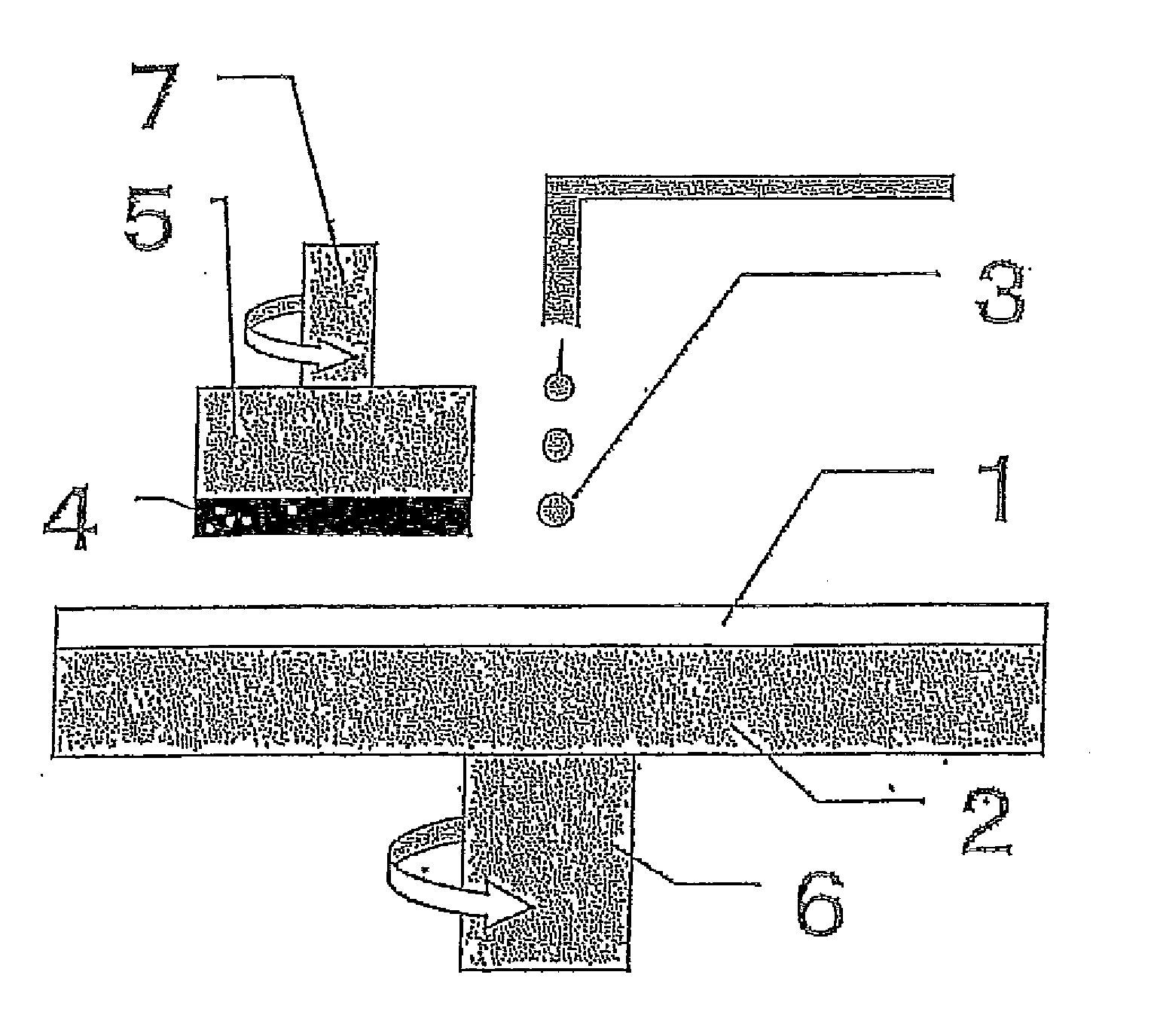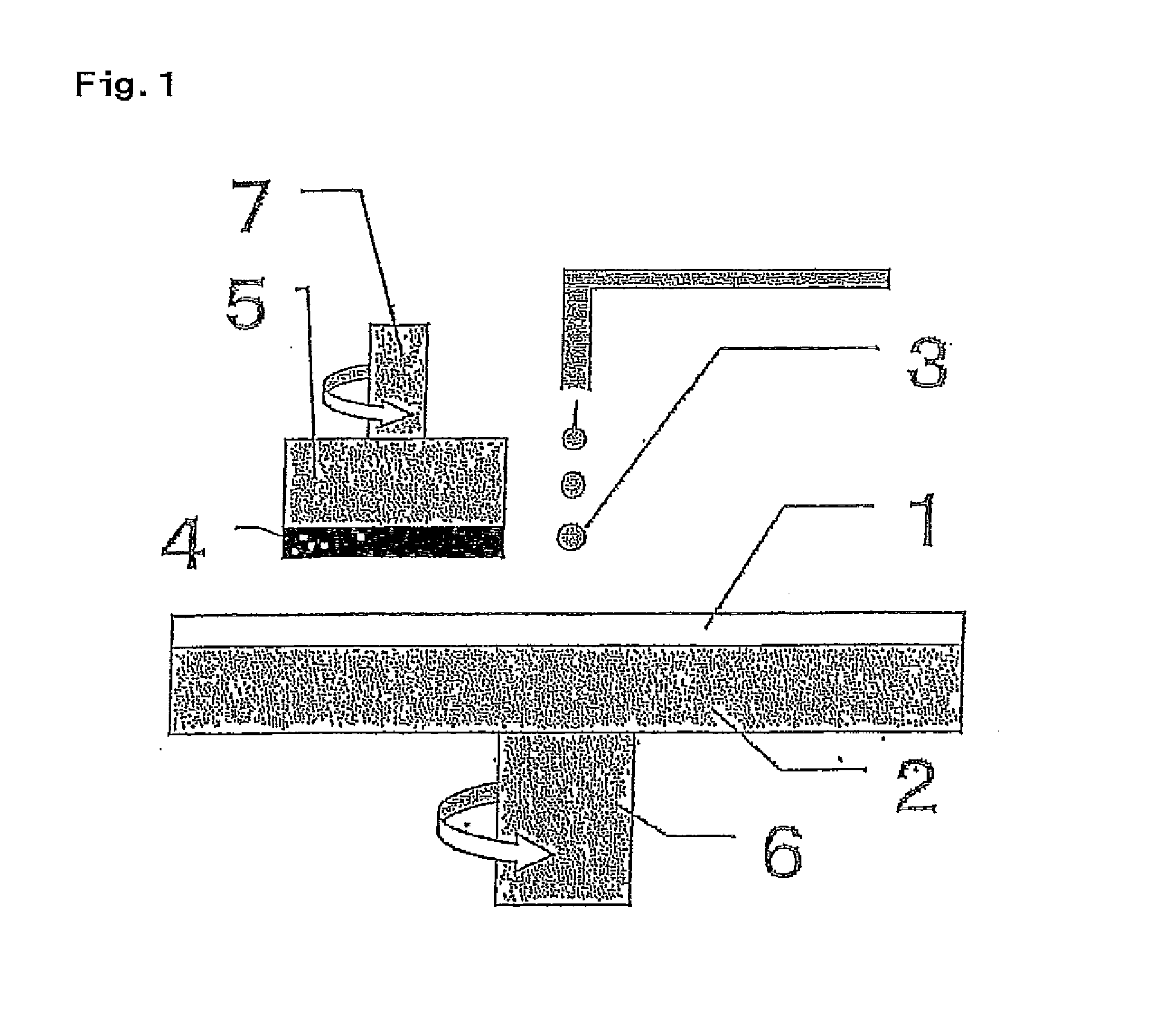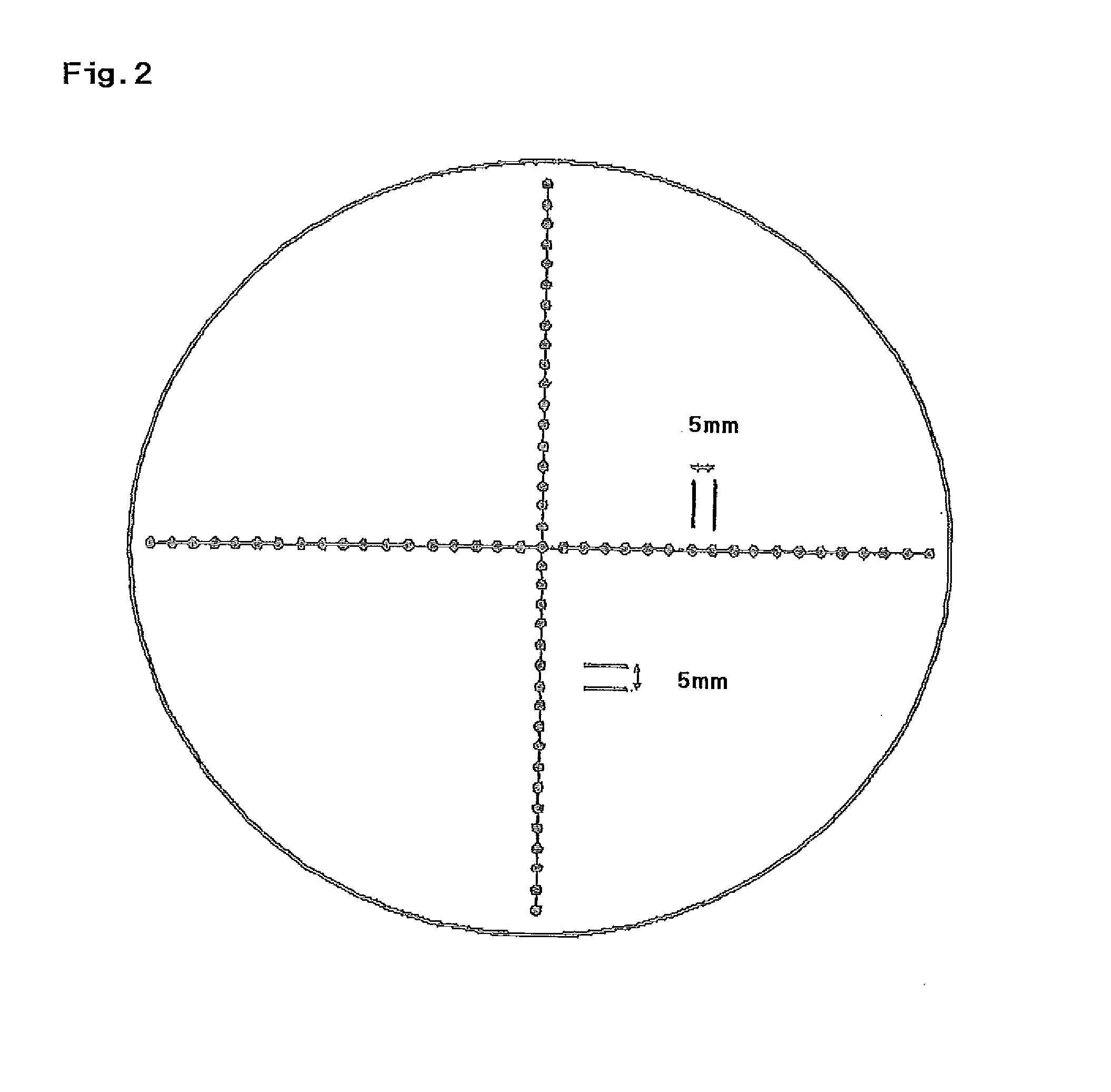Polishing pad and method for producing same
a technology of polishing pad and surface, which is applied in the field of polishing pad, can solve the problems of uneven surface area of polishing pad, decreased polishing speed, and scratching (flaws) on the surface, and achieve the effect of improving the dressing property
- Summary
- Abstract
- Description
- Claims
- Application Information
AI Technical Summary
Benefits of technology
Problems solved by technology
Method used
Image
Examples
example 1
[0081]To a vessel were added 1229 parts by weight of toluene diisocyanate (a mixture of toluene 2,4-diisocyanate / toluene 2,6-diisocyanate=80 / 20), 272 parts by weight of 4,4′-dicyclohexylmethane diisocyanate, 1901 parts by weight of polytetramethylene ether glycol with a number average molecular weight of 1018, and 198 parts by weight of diethylene glycol, and the mixture was allowed to react at 70° C. for 4 hours to obtain an isocyanate-terminated prepolymer A.
[0082]In addition, to a vessel were added 100 parts by weight of a polymerized 1,6-hexamethylene diisocyanate (Sumijule N-3300 (isocyanurate type) manufactured by Sumika Bayer Urethane Co., Ltd.) as an isocyanate-modified body and 16.3 parts by weight of polytetramethylene ether glycol with a number average molecular weight of 250 (NCO index: 4.0), and the mixture was allowed to react at 100° C. for 3 hours to obtain an isocyanate-terminated prepolymer B(1).
[0083]One hundred parts by weight of the prepolymer A and 16 parts by ...
example 2
[0084]A polishing pad was prepared in the same manner as in Example 1, except that in Example 1, the addition amount of the prepolymer B(1) was changed to 8 parts by weight from 16 parts by weight, and the addition amount of 4,4′-methylenebis(o-chloroaniline) was changed to 29.8 parts by weight from 33.1 parts by weight.
example 3
[0085]To a vessel were added 100 parts by weight of a polymerized 1,6-hexamethylene diisocyanate (Sumijule N-3300 (isocyanurate type) manufactured by Sumika Bayer Urethane Co., Ltd.) as an isocyanate-modified body and 42.4 parts by weight of polytetramethylene ether glycol with a number average molecular weight of 650 (NCO index: 4.0), and the mixture was allowed to react at 100° C. for 3 hours to obtain an isocyanate-terminated prepolymer B(2).
[0086]A polishing pad was prepared in the same manner as in Example 1, except that in Example 1, 16 parts by weight of the prepolymer B(2) was used in place of 16 parts by weight of the prepolymer B(1), and addition amount of 4,4′-methylenebis(o-chloroaniline) was changed to 31.9 parts by weight from 33.1 parts by weight.
PUM
| Property | Measurement | Unit |
|---|---|---|
| Angle | aaaaa | aaaaa |
| Percent by mass | aaaaa | aaaaa |
| Percent by mass | aaaaa | aaaaa |
Abstract
Description
Claims
Application Information
 Login to View More
Login to View More - R&D
- Intellectual Property
- Life Sciences
- Materials
- Tech Scout
- Unparalleled Data Quality
- Higher Quality Content
- 60% Fewer Hallucinations
Browse by: Latest US Patents, China's latest patents, Technical Efficacy Thesaurus, Application Domain, Technology Topic, Popular Technical Reports.
© 2025 PatSnap. All rights reserved.Legal|Privacy policy|Modern Slavery Act Transparency Statement|Sitemap|About US| Contact US: help@patsnap.com



